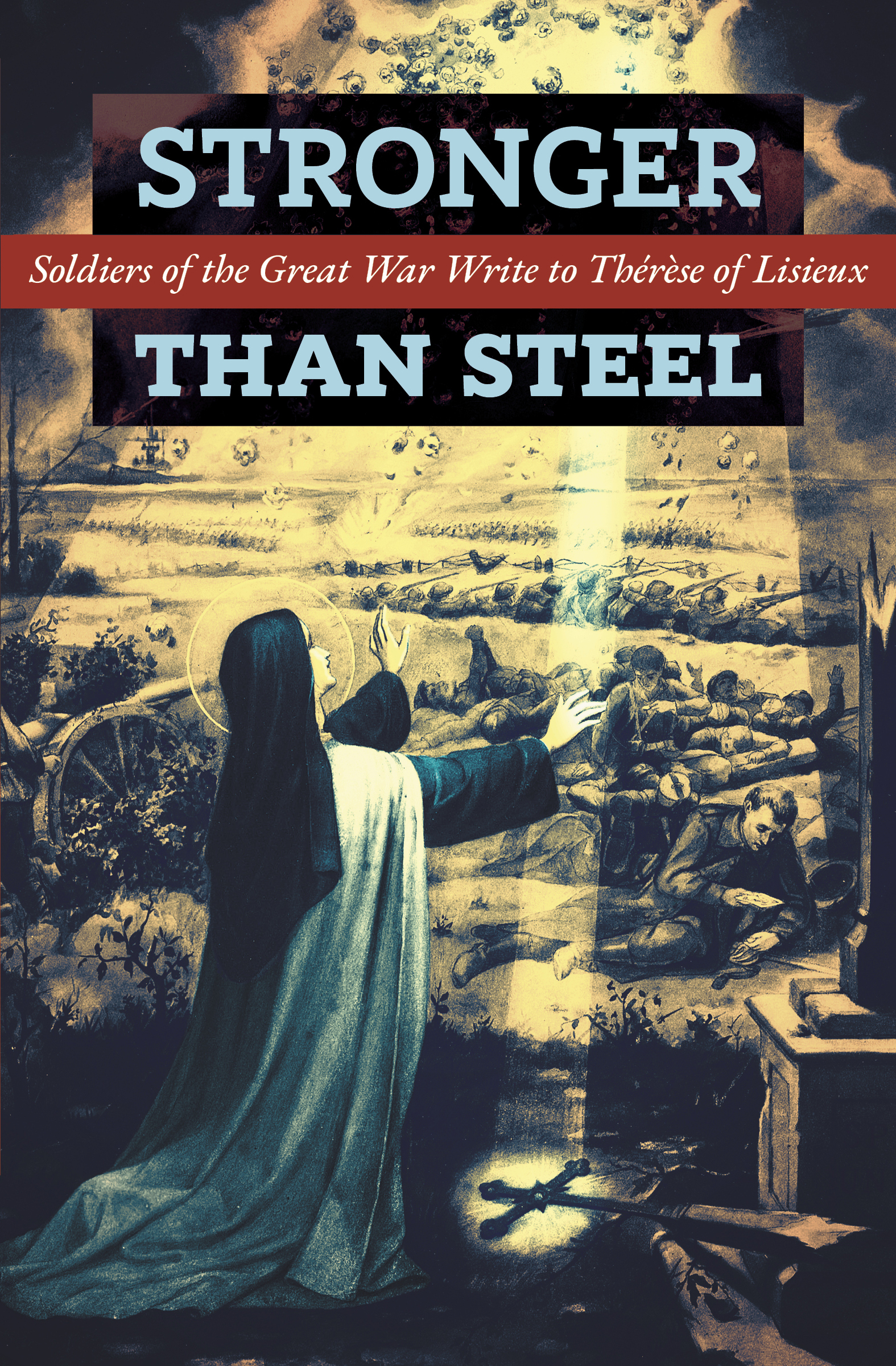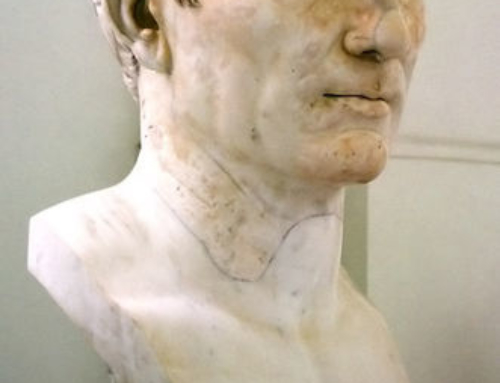Stronger Than Steel-– the book I had written about a few weeks ago is now available. This is an amazing little book that will renew your faith in the supernatural, the communion of the saints and devotion to St Therese of Lisieux. It is a collection of letters from soldiers during the Great War recounting miracles of St Therese on the battlefield.
Here is an excerpt from the foreword I provided:
In the first World War, Germany (allied with the Turks,Austria and Italy) marched against France (allied with Russia, Britain and the USA) The fighting was the most bitter and deadly the world had ever seen. The suffering of the young men in the trenches was heartbreaking and relentless.
Therese Martin had died in 1897 just seventeen years before war broke out. In those years her book The Story of a Soul had been published and her fame had begun to spread. The book was hugely popular and quickly moved not only around France, but around the world through the French colonies in Africa and Indochina. Along with the growing devotion to Therese was an increasing call for her canonization. To this end the faithful from around the world wrote to the Mother Superior at the Carmelite convent bearing witness to the miracles and personal encounters they had had from the Little Flower.
Pope Pius X opened the cause for Therese’s canonization in 1914 the same year the war broke out. This remarkable collection of letters from French soldiers fighting in the Great War is an abiding sign of the little saint’s supernatural powers. She said on her deathbed, “I will spend my heaven doing good on earth” and she wasted no time! These letters from brave young soldiers tell how she appeared to them, how she miraculously protected them, delivered them from danger, healed them and encouraged them in battle.
In reading these astonishing and moving testimonies I am reminded of my own encounter with St Therese. In the summer of 1987 I was a young Anglican minister who had just completed his first assignment. I had three months free before my next post commenced, so I decided to make a pilgrimage to Jerusalem—hitch-hiking from England and staying in monasteries en route.
The first leg of my journey was the ferry crossing to France. I got a late start and unfortunately missed the ferry sailing from Portsmouth on the south coast of England to the French port of Cherbourg in Normandy. I had planned to travel from there to the monastery of Mont St Michel. However, having missed the boat, I took the next available crossing which was to Le Havre—further East along the Normandy coast. Getting off the ferry mid afternoon I had the task of finding a place to stay for the night. Looking at the map I noticed that the town of Lisieux was on my path. I had heard of St Therese of Lisieux and reckoned there might be some sort of hostel for pilgrims in the town.
I was right. On arrival I spotted “Le Hermitage”—a large hostel right next to the Carmelite convent in the middle of Lisieux. I entered and asked the young nun at the desk if I might have a room for the night as I was on pilgrimage. She smiled and showed me to a pleasant room, spartan in its monastic furnishings. After a stroll up the hill to the basilica dedicated to Therese and supper in the shared dining room, I headed up to my room and conked out. It had been a long and adventurous first day of my trek to
Jerusalem.I opened the shutters on the tall window of my room which overlooked the convent where Therese lived and died. It was a balmy summer evening and the breeze wafted the gauze curtains lightly as I went to sleep. About three o’clock in the morning I woke up, alert and conscious of what I can only describe as a strong, benevolent female presence in the room. I sat bolt upright aware and in tune with this revenant. I felt it was Therese.
Remember, I was an Anglican priest at the time from a strongly Evangelical, Protestant background. We were not inclined to believe in the intercession of saints and we were certainly not inclined toward the appearance or presence of saints—having been taught that Catholics “prayed to dead people” such “traditions of men”, we were told, were akin to necromancy and thus forbidden.
But during my Anglican training I had become much more open minded about things Catholic and guessed that the presence in the room might very well be that of the young French woman.
After about fifteen minutes I went back to sleep, but the next day visited the Carmelite convent and the Martin family home Les Buissonets— where I purchased an English translation of The Story of a Soul. I clearly remember setting out on the road from Lisieux to Caen with my thumb out saying to Therese, “I have read that you pray for priests. Even though I am not a full member of your family I ask that you pray for me.”
I am convinced that she did just that and protected me and traveled with me on my great adventure that summer, and that furthermore, she has been with me in the greater adventure ever since. How is it that eventually I would become not only a full member of her family, but one of her priests—even though a married man? I have no doubt it has been due to the intercession and protection of ma petite soeur— my little sister—the steel magnolia.
My experience on that summer night fits harmoniously with the testimonies of the young French soldiers collected here. As you read them be reminded that we are all called to the Great War—the spiritual war— and that this valiant soul (who Pope Pius X called “the greatest saint of modern times”) never fails to encourage and assist us in battle.
You can get the book at Amazon or on my website here. My price is a bit higher because I don’t charge for shipping, and if you want me to sign it and inscribe it just put a note in the order form.







Stronger than Steel is a wonderful book! It’s seems so unlikely that this most feminine of saints would be delegated by God to lead men through the perils of the battlefield. So very like God to do the unlikely.
I am very proud to have been instrumental in bringing the book to an English audience. It is not only a wonderful book. It is an important book because, in this age of materialism it is unabashedly supernatural.